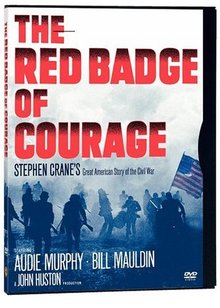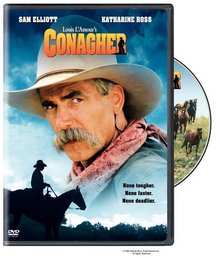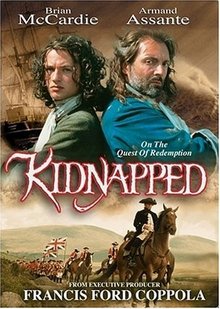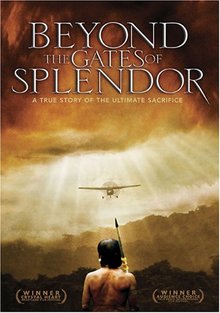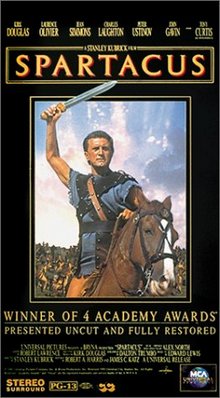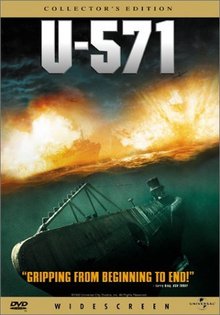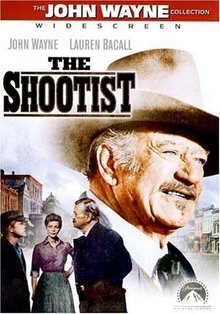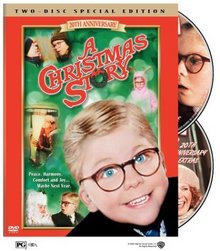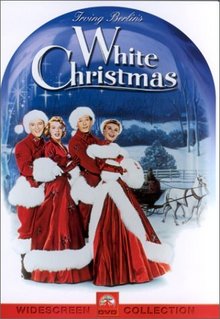No movie this week as I’ve exhausted my original list of films and discussion topics I compiled for the Fundamentals in Film class I taught to a small group of junior and senior high school boys. I am, however, in the process of reviewing other films I’ve thought of or that people have recommended so I can continue the series, using the same approach of looking for examples of personal character within the movies. My thanks to those of you who have commented, e-mailed or spoken to me in person to tell me what you’ve gotten out of this series or how you plan to use it with your own sons or young adults. I’m honored by your response, and it is your reaction that has encouraged me to expand the series.
I’ve been promising a post describing how the Fundamentals in Film class went over with the boys and whether or not I felt it met the objectives I had in mind, and this is as good a time as any to get into this.
In general, I believe that the boys learn in different ways than girls and while they can get a lot out of the classroom, they are also programmed for action and competition. This is especially true as they get older and stronger and have a lot of energy that needs to be channeled in constructive ways, especially for teens still learning their own strength. I won’t go into all the sociological studies here, but reason and experience confirm this for me. I think a lot of “acting out” is really out of the need just to “act” and inappropriate behavior is more likely when appropriate outlets aren’t available. (Sometimes, of course, they’re just being stupid and there’s no excuse). I also know – as the English public schools discovered centuries ago – that boys will respond positively to being challenged with a goal and when given an opportunity to channel their nearly limitless combustive energy into competition. When I was in school this outlet was often provided through athletics where discipline and self-control were part of the game.
The small, private school my kids were attending (I wasn’t on the faculty, by the way) didn’t have a similar organized sports outlet, and there weren’t many grown men available to provide a man-to-man example or response to unruliness. Make no mistake, the older boys at the school were definitely learning about right and wrong, but I saw a need to provide a tangible goal and competitive challenge as a way to model and engage the “manly” virtues. The problem was, how? There weren’t enough boys to field a reasonable basketball or baseball squad, and I didn’t have the time (or know anyone who did) to play coach and athletic director in lining up games and practices, yet somehow, someway these kids needed to see what the ideals of sacrifice, teamwork, honor, honesty were all about in a way were they could participate.
The best I could do was to devise a two-track program for the spring semester. The competitive angle was to divide the boys into two teams (they chose to go with junior high vs. high school) with an elaborate scoring system of points and demerits. Each boy was responsible for his own actions and score, but his efforts (or lack of effort) would also count toward his team’s total. Points were awarded for good deeds, extra work or chores around the school, special projects, community service – and for being in attendance at one of the movie sessions. Each had to earn a certain number of points every two weeks to “qualify” for the next movie. Points were deducted from each for rudeness, crudeness, acting out, being disrespectful and other bad behavior. Any adult at the school had the authority to add or deduct points to a boy’s scorecard (which they were required to carry with them while on the school grounds). At the end of the semester the team with the highest score won a Famous Dave’s feast, provided by yours truly. Since an individual’s actions could result in points being taken away from the team, there was an element of peer pressure to keep one another in line and to exhort one another to do things to increase the score.
The second track of the program further emphasized the character and discipline aspects while also providing the incentive of an entire afternoon during school time to watch an entertaining movie (even if you had to sit through a discussion after the film was over). Because I worked full-time I could only arrange Friday afternoon’s off on an every other week basis. This track, then, became the Fundamentals in Film series of movies and discussion that you’ve seen here the past few months.
So, finally, what happened?
First of all, the lads all had to sign-up for the class voluntarily. In doing so, however, they also had to sign a pledge to act honorably, obey the rules and support their teammates – and to participate in the scoring system. In practice, of course, some found this to be more difficult than they anticipated, especially when asked to produce their scorecard after making some rude noise in class – and especially when they started to realize just how much work they had to do to reach the qualifying level for the next movie. Fortunately they responded – some more willingly than others – but there were times when one or more of them spent the afternoon in classes with the girls rather than watching a movie.
The points also counted toward their grade in the class, which was also going to be impacted by their scores on two fill-in-the blank and essay tests at mid-term and for the final. To add a dose of the real world to the proceedings, I let them know that the point levels to get an F, D, C, B or A were clearly outlined and would not be adjusted so they could keep track of their progress. I would not, however, nag or cajole them if they weren’t on track; that was going to be up to them and to their teammates. Along the way there was also a special after-school outing to a rock-climbing center I arranged for which they also had to have earned a minimum number of points in order to participate (they all made it).
As the semester wore on, about half of the boys either embraced or adapted to the program while the other half didn’t. One even pointed out that it wasn’t fair because, “this wasn’t what I thought I was signing up for.” My response was, “So what? There are a lot of things in life that aren’t going to go the way you expect – jobs, marriages, child-rearing – are you going to sulk and quit because you don’t like it, or are you going to live up to your word and the commitments you’ve made?” He said he would keep on and support his team, but his actions turned out to be the complete opposite, which also turned into a lesson for him and his teammates.
The competition was close all through the semester with the “lead” changing often. The two tests were based on questions from the study guides and discussions we had after each movie and the scores on these exams had a big impact on the final tally as well. In the end, the junior high team edged the senior high team for the feast, due largely to the de facto withdrawal of the young man I mentioned earlier. He also ended up flunking the class along with a couple of other boys. Simply put, the points just weren’t there, though they were a true reflection of the effort put forth.
The highest scoring kid in the class ended up enrolling in public school the following fall, but it was particularly satisfying when he came back and showed me an essay he’d written for one of his classes, disputing a position his teacher had taken. He’d based his arguments on themes we’d developed in the class, in particular the direction to “act justly, love mercy and walk humbly with your God” that we frequently used in class discussions. The essay was graded with an “A”.
I think everyone in the class learned something from the experience; I know I certainly did. At the end of the year each student received his final grade in a personal letter from me that also provided additional perspective on the class. Common to each letter were the following words:
The bi-weekly scorecards challenged you to look outside yourself and consider others – teammates, classmates and teachers – in different ways. Within the class itself, the majority of the questions did not have ready, obvious answers; instead they required you to go below the surface to get at deeper meanings and relevance. In this way, the class was more in the style of a college class (or at least college classes that I attended more than 20 years ago). Given the range in ages that you represent, this was a tall order. Nevertheless, those who failed this class failed due to a lack of effort, not a lack of insight or intellect. In the real world, it is often thus.
Signing up for the class was voluntary on your part; once begun, however you might have felt that the conditions of the course were not of your own choosing and therefore, perhaps, not worthy of your best effort. Yet if there is anything you should remember from the movies we watched it is that being in circumstances not of your own choosing does not excuse you from acting honorably. Think of Marshall Kane in High Noon, the British soldiers in Zulu, or the U.S. sailors in U-571. Think of Sgt. York. Furthermore, finding yourself in a situation that is of your own choosing, but has turned out different than you expected, also does not exempt you from acting honorably.
What does it mean to act honorably? Is honor something that you have to get for yourself and then fight off others in order to keep it, or is it something given to you by others where you then have to fight with yourself in order to hold onto it? Honor is something to be prized, but not coveted. If you are more concerned with “my honor” than you are with treating others honorably, you have missed the point completely.
